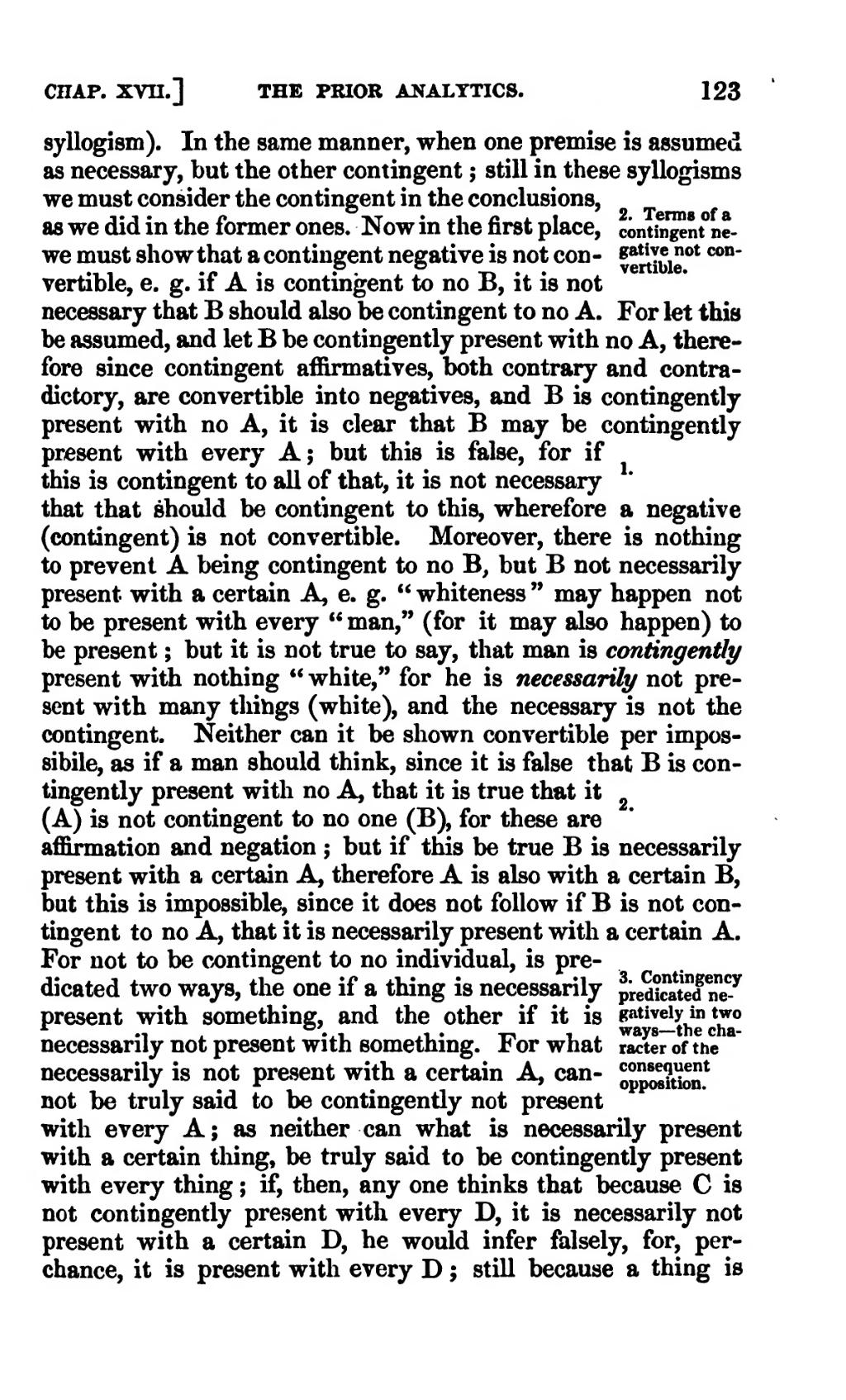syllogism). In the same manner, when one premise is assumed as necessary, but the other contingent; still in these syllogisms we must consider the contingent in the conclusions, as we did in the former ones. Now in the first place, we must show that a contingent negative is not convertible, e.g. if A is contingent to no B, it is not necessary that B should also be contingent to no A. For let this be assumed, and let B be contingently present with no A, therefore since contingent affirmatives, both contrary and contradictory, are convertible into negatives, and B is contingently present with no A, it is clear that B may be contingently present with every A; but this is false, for if this is contingent to all of that, it is not necessary that that should be contingent to this, wherefore a negative (contingent) is not convertible. Moreover, there is nothing to prevent A being contingent to no B, but B not necessarily present with a certain A, e.g. "whiteness" may happen not to be present with every "man," (for it may also happen) to be present; but it is not true to say, that man is contingently present with nothing "white," for he is necessarily not present with many things (white), and the necessary is not the contingent. Neither can it be shown convertible per impossibile, as if a man should think, since it is false that B is contingently present with no A, that it is true that it (A) is not contingent to no one (B), for these are affirmation and negation; but if this be true B is necessarily present with a certain A, therefore A is also with a certain B, but this is impossible, since it does not follow if B is not contingent to no A, that it is necessarily present with a certain A. For not to be contingent to no individual, is predicated two ways, the one if a thing is necessarily present with something, and the other if it is necessarily not present with something. For what necessarily is not present with a certain A, cannot be truly said to be contingently not present with every A; as neither can what is necessarily present with a certain thing, be truly said to be contingently present with every thing; if, then, any one thinks that because C is not contingently present with every D, it is necessarily not present with a certain D, he would infer falsely, for, perchance, it is present with every D; still because a thing is
